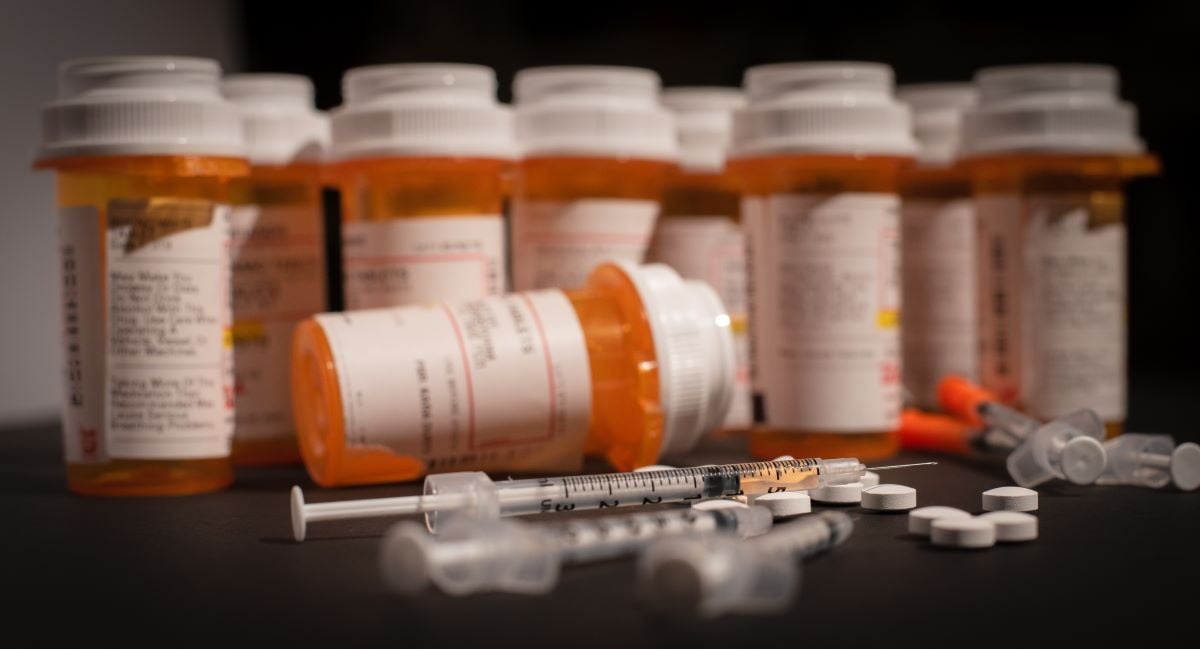Although many drugs have the potential to cause an overdose, xylazine is especially dangerous in this regard as it is meant for large animals, not humans. Avenues Recovery, a leading addiction rehabilitation specialist, explores what xylazine is, identifies xylazine overdose symptoms, and discusses the problem with xylazine reversal.
What Is Xylazine?
Xylazine, also known as “tranq” or “tranq dope,” is a non-opiate sedative, pain reliever, and muscle relaxant used in veterinary (animal) medicine. While xylazine is not approved for human use, it has unfortunately been misused and mixed with other drugs for recreational use. In such cases, it can pose serious health risks, including extreme sedation, slowed heart rate, difficulty breathing, and possible death.
Xylazine may be more commonly found in illegal drug mixes and identified in fatal overdoses than reported. This is because many regions nationwide do not test for xylazine in forensic labs or toxicology screenings.
Why Are Xylazine Overdose Cases Increasing?
Xylazine’s low price and the ability to buy it without verification allow drug dealers to lace other substances with it, leading to increased occurrences of tranq overdose. The cost of xylazine ranges from $6 to $20 per kilogram - which is extremely cheap compared to other illicit drugs. Therefore, the addition of xylazine into blends with fentanyl, cocaine, or heroin increases profitability for drug traffickers.
While a considerable number of users remain oblivious to the inclusion of xylazine in their drug concoctions, it has garnered appeal among those who desire an extended duration of euphoria. Conversely, other individuals opt to steer clear of xylazine due to concerns about potential effects or the perceived dampening of the euphoric experience.

What Is Xylazine Reversal?
Xylazine reversal is the act of giving medication to reverse the effects of the drug. However, while there is xylazine reversal medication for animals, there are no xylazine reversal medications for humans. This means that if someone has accidentally been exposed to or misused xylazine, there will be no antidote for their xylazine overdose. Medical professionals would need to manage the symptoms and provide supportive care based on the individual's condition.
Does Narcan Work on Xylazine?
Narcan does not work directly on xylazine, as it is not an opioid. However, since xylazine is often mixed with opioids, medical personnel or laymen need to be on call with naloxone (narcan) to reverse the effects of those opioids.
How Much Xylazine Will Kill a Human?
It only takes a small amount of xylazine to kill a human. Since it is meant for large animals and not humans, xylazine has a narrow therapeutic range, meaning that the difference between a therapeutic dose and a toxic dose is minute. The effects of xylazine vary among individuals, and its toxicity can lead to severe consequences, including:
- Respiratory depression
- Cardiovascular collapse
- Death

If you suspect someone of ingesting or being exposed to xylazine, it is critical to seek immediate medical attention. Medical professionals will assess the individual's condition and provide appropriate care to manage symptoms and complications associated with xylazine toxicity.
Xylazine Overdose Symptoms
Symptoms of xylazine overdose in humans, also known as ‘tranq overdose’, may include:
- Central nervous system (CNS) depression
- Difficulty breathing
- Low blood pressure
- Slow heart rate
- Hypothermia
- Gastrointestinal distress
What Is the Xylazine Overdose Treatment?
Treatment for xylazine exposure or overdose depends on the severity of the situation and the promptness of medical intervention. It may involve wound treatment, respiratory support, stomach pumping, administration of activated charcoal, and continuous monitoring.
The stages of treatment and recovery process are detailed below:
Medical Assessment
Upon arrival at a medical facility, healthcare professionals will conduct a thorough assessment of the individual's condition. This may include monitoring vital signs, assessing respiratory function, and checking cardiovascular status. In addition, medicines like benzos, clonidine, dexmedetomidine, tizanidine, or guanfacine may be administered to manage symptoms.
Wound Treatment
Xylazine can cause wounds and tissue damage, which require medical treatment to avoid possible amputation.
Supportive Care
Treatment for xylazine toxicity is primarily supportive, as there is no specific antidote. Supportive care may involve providing assisted ventilation, the administration of fluids to address low blood pressure, and managing other symptoms.
Cleaning Out the Stomach
Sometimes, doctors wash out the stomach to remove any remaining xylazine.

Activated Charcoal
In some cases, healthcare providers may administer activated charcoal to limit further absorption of xylazine. This is often done if the exposure occurred recently.
Monitoring
Continuous monitoring of vital signs, including heart rate, blood pressure, and oxygen saturation, is essential during the recovery period. This helps healthcare providers gauge the effectiveness of interventions and respond to any changes in the individual's condition.
The individual may be observed in a medical setting until healthcare professionals are confident that the effects of xylazine have diminished, and there is no longer a risk of complications.
Psychological Support
Depending on the circumstances surrounding the xylazine exposure, individuals may benefit from psychological support. This could include counseling or therapy to address any underlying issues related to substance use.
Rehab Treatment
In the case of addiction to xylazine or concurrent opioid addiction, residential addiction treatment can get to the root of the addiction and help a person with xylazine withdrawal to avoid future overdoses.

Can You Recover From a Xylazine Overdose?
Yes, if you or a loved one has experienced a xylazine overdose, you can recover completely with the right help.
Are you or someone you love suffering from xylazine addiction? Reach out to us at Avenues Recovery so we can guide you on your path to recovery. Our highly trained staff are experts in the field of xylazine overdose and addiction and are waiting to support you. We have helped thousands of people overcome their addiction, and we can help you too. Contact Avenues Recovery today to experience high-quality, caring, and professional care, providing utmost support every step of your journey to sobriety.



